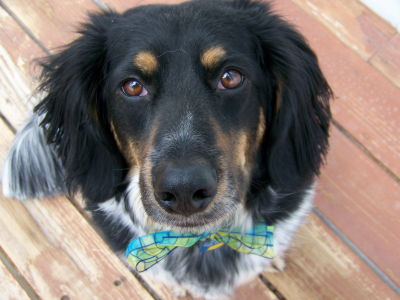People can't tell whether similar drawings are made by AI or humans, and they feel disgusted by ``drawings they think are AI''

Some people have a strange aversion to AI-generated pictures, but when shown a similar picture, it has been found that humans may not be able to distinguish who (or what) drew it. Furthermore, it has been found that humans will baselessly give bad reviews to pictures of people that they believe to be made by AI.
Understanding how personality traits, experiences, and attitudes shape negative bias toward AI-generated artworks | Scientific Reports
People liked AI art – when they thought it was made by humans
https://www.sciencenorway.no/art-artificial-intelligence/people-liked-ai-art-when-they-thought-it-was-made-by-humans/2337417
Psychologists Simone Grassini and Mika Koivisto conducted an experiment in which they showed paintings to humans and asked them to evaluate them to see how people would perceive and evaluate artworks that they interpreted as having been created by AI.
Grassini and his team obtained 20 minor works drawn by humans from the Internet, and then used the image generation AI Midjourney V.4 to generate images based on five different art styles, including 'Cubism,' 'Impressionism,' and 'Traditional Japanese Art.' The image generation was repeated until no images with unacceptable quality, such as distorted figures, were produced.
Grassini and his team randomly showed the 40 images prepared in this way to the subjects and asked them to rate how positive emotions the images evoked, whether they thought the images were made by AI, etc. In addition, they investigated five major personality traits of the subjects, such as extroversion, agreeableness, and emotional stability.
Below is the AI-generated picture prepared for the experiment.

The results showed that subjects were not very good at determining whether an image was created by an AI, and that humans even gave lower ratings to images that appeared to be created by an AI.
'Participants who thought an image was created by an AI viewed it as uglier and with lower emotional value, regardless of where it actually came from; whereas participants who thought the image was created by a human viewed it as more beautiful and with higher emotional value, regardless of its actual origin,' Grassini and his colleagues wrote.
The results of linking personality traits with values toward images showed that subjects with a higher creative identity showed a stronger preference for images they believed were generated by humans. Grassini et al. speculated that 'people with a strong attachment to art may view AI-generated art as a threat to traditional artistic processes that are deeply rooted in human creativity and expression. This tendency may arise from the perception that AI-generated art lacks the expressive power of human-created art, resulting in a negative bias toward creative works.'
On the other hand, subjects who had positive feelings toward technology showed a smaller difference in preference between images perceived as human drawings and images perceived as AI-made.
Grassini and his team had predicted this, but contrary to their expectations, people with 'openness,' which is generally associated with an interest in art and creativity, were less averse to the AI-made pictures. Regarding this, Grassini and his team speculated that 'open-minded people may be more receptive to new technology products than the average person.'

In conducting this research, considering that the quality of human drawings tends to deteriorate when photographed or scanned, noise was added to the AI-made images to make them look more like human drawings. In addition, all the drawings were cropped to a square, so Grassini and his colleagues pointed out that they may not have been displayed as the artist intended.
'Our results support the idea that humans may rate AI-generated artworks lower, likely due to cognitive biases. For humans, it doesn't matter where the artwork actually came from; rather, what we believe dominates our emotions, and the objective quality of the artwork seems less important,' Grassini and colleagues wrote.
Alinta Kraut, a professor of digital culture at the University of Bergen, the same institution as Grassini and others, commented, 'In many ethnicities and cultures, humans see creativity as something uniquely human. Society wants to continue to recognize creativity as a special human characteristic. Humans want to fight for it.' Kraut also said, 'Being creative and making art that people like certainly overlap, but they are not the same. Machines can create visual products that people find pleasing even if they are not inherently creative. The subjects in this study should not be ashamed of giving high ratings to works created by AI.'

Related Posts:







